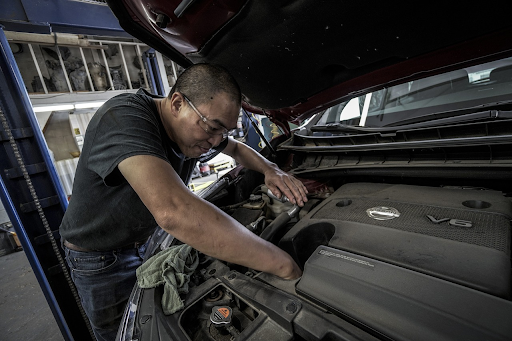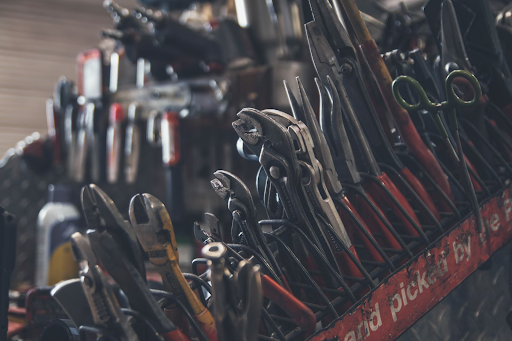7 Things Every Professional Mechanics Shop Must Have
When starting a professional mechanics shop, there are many things to consider and plenty of decisions to make to ensure you have everything necessary for success. From tools and supplies to the latest diagnostic equipment, these seven essentials will help get your shop up and running quickly so you can begin providing reliable services for your clients. Read on for tips about what must-haves no automotive repair business should be without!
1. Comprehensive Tool Collection
A comprehensive tool collection is essential to perform all the myriad repairs that a mechanic might encounter. From the smallest wrench to large engine-removing industrial jacks and cranes, everything must be on hand, clean, and ready for use. The importance of keeping one’s tool collection maintained and up to date cannot be overstated – many tools are specifically designed for certain automotive jobs. At the end of the day, having a reliable set of tools at your disposal can make for smooth and successful repair work every time.
2. Quality Diagnostic Equipment
This cutting-edge technology allows mechanics to hook up a car to a specialized machine and rapidly identify any existing or potential issues that may be present with the vehicle. Employing a comprehensive system of scan tools and other diagnostic resources, car experts can efficiently pinpoint the source of common problems such as transmission failure, computer malfunctions, electrical system trouble, or engine botherations.
3. Multifunctional work benches
For anyone who wants to work on their own car or complete a variety of other projects around the house, having a sturdy and reliable workbench is essential. These workbenches are designed with various features and attachments that enable them to handle a wide range of tools, parts, and equipment. If you live in Australia you can order high-quality multifunctional work benches that will make any job you do all the more practical. A good quality workbench should include all the necessary parts – adjustable legs for added stability, lower shelves for extra storage, a smooth countertop to prepare materials on, and secure fasteners that won’t rattle loose during use. With all of these features available in one well-made workbench, you can turn any workspace into an efficient machine shop.
4. Quality Parts
Providing quality parts to a customer is key to any successful repair. Quality parts are essential for keeping the problems they confronted with their vehicle or product from happening again. It also increases customer satisfaction since the parts should last longer if they are of a higher quality. Not only that but having access to quality parts allows the repair professionals to quickly identify and resolve issues with customers’ vehicles or products. That being said, when it comes down to it, quality parts do more than just help speed up repairs; they provide value for customers and make them more likely to return for future repairs.
5. Professional Lift System
A professional lift system can be a valuable asset to any automotive service center. By allowing trained mechanics safe access to a car’s undersides, these systems enable them to diagnose and perform accurate repairs faster. Instead of struggling with jacks and scissor lifts, these lifts can be easily lowered or raised at the touch of a button, giving mechanics more precision with their work and minimizing the risks associated with traditional methods. While there is an initial cost for the purchase of such a system, it typically pays for itself quickly by reducing strain on staff and increasing the speed and accuracy of automotive repairs.
6. Storage for Oils and Other Fluids
Storing oils and other fluids in the correct type of containers is essential for maintaining the quality and safety of the product. While plastic, stone, stainless steel, or aluminum containers all offer various advantages depending on their intended purpose, it’s important to remember that non-metallic containers can chip or crack over time due to exposure to the sun and other elements. If you are looking for a safe but affordable way to store large quantities of either oil or other fluids, then metal storage tanks might be your best choice.
7. Air Compressor for Tire Pressure Checks
Having the right air pressure for your tires is essential for a comfortable and safe driving experience. Checking the tire pressure monthly with an air compressor is an easy way to ensure your brakes, suspension, and engine are functioning properly. An air compressor will come in handy when you need to top off low tire pressure during a road trip so that you don’t find yourself stuck on the side of the road due to a flat tire.
To sum it up, auto mechanics need to ensure they are properly equipped and prepared to perform maintenance and repair work with the right tools and equipment. A comprehensive tool collection, quality diagnostic equipment, a multifunctional workbench, quality parts, and a professional lift system are all essential components that make up a successful mechanic shop. Having the right tools allows mechanics to accurately diagnose problems and make quality repairs that customers can trust. Additionally, it keeps the work area clean and safe for everyone involved. As an auto mechanic, you want your customers to know you take pride in your work by ensuring you are working with only the best materials available.
Check Next >https://www.neoadviser.com/what-are-the-benefits-of-getting-a-luxe-vehicle/





